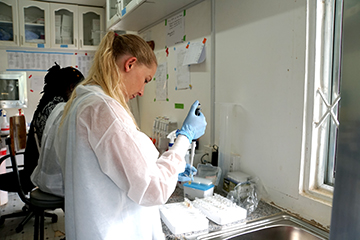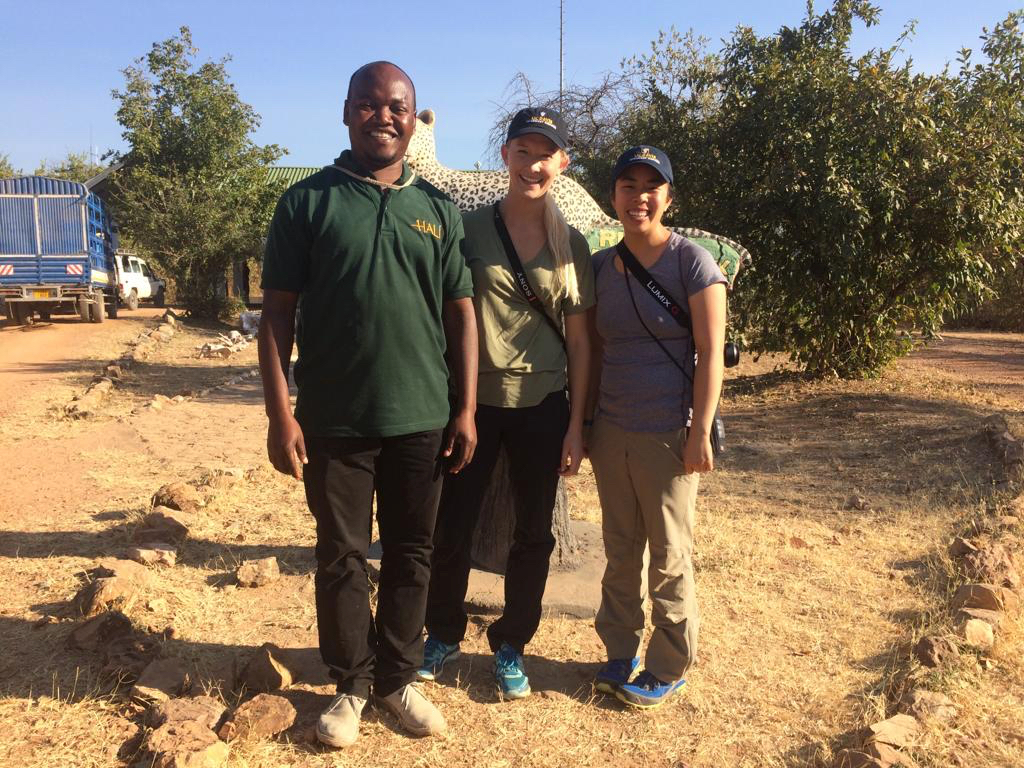Allison Coyle
Allison Coyle - "Fecal Genetics, Climate Change, and Rx One Health"
In 2017, after finishing my first year of veterinary school unsure that my original plan of small animal private practice was for me, I was lucky enough to receive funding to develop a One Health research project in South Africa. The complexity and interconnectedness of the human and animal health problems intrigued me. There was so much to learn, and so much potential for inventive solutions to make a difference in the lives of the people, their animals, and the surrounding wildlife. I didn’t necessarily know what to expect, but what I found was an enriching and life-changing experience in a field that I am not only interested in, but have a passion for. Upon returning home, I sought more opportunities in One Health. Dr. Conrad spoke to our class about the Rx One Health course, which was to take place in Tanzania, and would provide exposure to and hands-on experience with so many different aspects of One Health. I knew it was exactly what I needed to move forward and explore the field and my career aspirations.
I also wanted to round out my summer experience with a research component, so I partnered with another student, Megan Ouyang, to develop a project that would complement our work on the course. After a lot of literature review and collaboration with wonderful faculty both at UC Davis and abroad, we came up with our project, “Transdisciplinary approach to felid conservation in the face of climate change.” It was a multi-faceted project with two major components. We planned to evaluate fecal genetics as a non-invasive tool for informing felid conservation in Tanzania, and investigate the effects of climate change on the lions of Ruaha National Park through literature review and collaboration with experts. Our participation in the course would allow us to gain knowledge and understand our research project in a One Health context.
Between March and when we left for Tanzania in June, Megan and I spent many hours in the veterinary genetics lab developing a multiplex primer mix that would hopefully allow us to identify individual lions based on differences at certain microsatellites in the genome. We gained so many invaluable skills in the lab, from concrete skills like pipetting and DNA extraction, to more intangible but still important skills such as being detail oriented and developing our abilities to problem solve when things didn’t go as planned. Following our work in the lab, we spent three weeks in Tanzania before the Rx One Health course to complete the fecal genetics component of the project. After an exciting four days in the park collecting fecal samples from lions, we extracted the DNA and ran PCR. Meanwhile, we also worked on our literature review, and spoke with wildlife and conservation experts at Sokoine University of Agriculture. During the course, we continued our project by speaking to important conservation stakeholders, such as Ruaha Carnivore Project. We also held an activity and lecture for our fellow course participants to illustrate our findings.
This international experience was both demanding and enlightening. Being put in varied, challenging situations improved my ability to problem solve and think on my feet. The research component gave me an opportunity to sharpen my critical thinking as I integrated new concepts and analyzed data in a meaningful context. This experience also allowed me to interact with people from different backgrounds than myself, who have so much knowledge, experience, and differing viewpoints to offer. Thank you to the UC Davis SVM Office for Global Programs and all the donors who made this project possible. The skills and knowledge I gained from this course will allow me to think globally and systematically, and work with others to design transformative solutions to some of the major health problems affecting our world.



